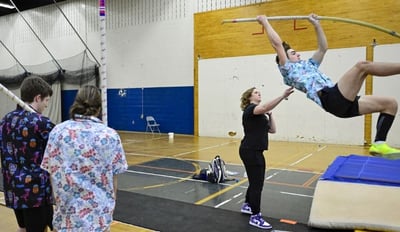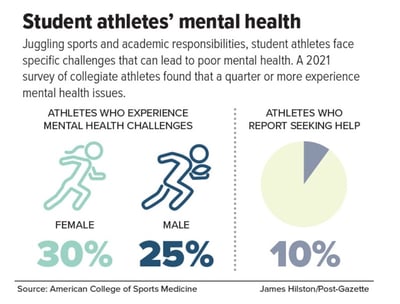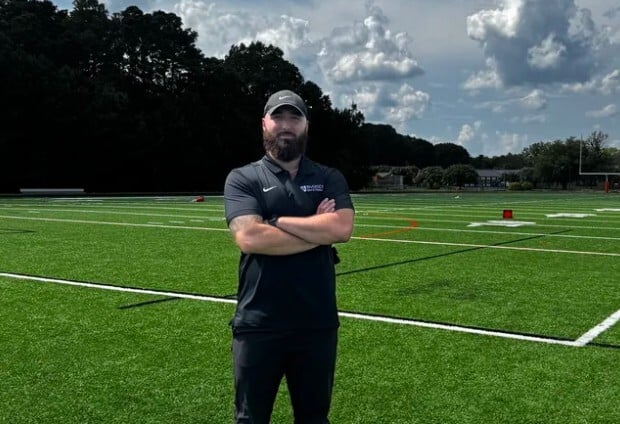Vital Role of Community and Mental Health Support in Student Athletics
 In the competitive world of student sports, the significance of community and mental health support is becoming increasingly recognized.
In the competitive world of student sports, the significance of community and mental health support is becoming increasingly recognized.
 At North Allegheny, a school known for its athletic and academic excellence, these elements are not just added benefits but core principles guiding the institution's approach to sports and education.
At North Allegheny, a school known for its athletic and academic excellence, these elements are not just added benefits but core principles guiding the institution's approach to sports and education.
Bill Love, an Athletic Trainer and teacher at North Allegheny, shared a poignant reminder of the power of community in sports.
A student approached him, expressing eagerness to try out for a sport—not for the competition or the glory, but simply to "be around people."
This interaction underscores a fundamental aspect of sports culture: its ability to forge connections and build community.
North Allegheny prides itself on a "family-first mentality," where students are tightly connected both on and off the field. According to Love, this culture of community is a significant factor in the increasing number of students trying out for sports at the school.
However, the road to excellence in sports is fraught with challenges, particularly for young athletes. Balancing schoolwork, managing stress from social media comparisons, and coping with performance pressure are just a few of the hurdles student athletes face.
A survey from the American College of Sports Medicine revealed that a significant number of college-level athletes experience mental health challenges, yet a small fraction seek help.

Recognizing the importance of mental health in athletics, initiatives like the U.S. Center for Mental Health and Sport, co-founded by Skye Arthur-Banning, are making strides in educating coaches and sports personnel about mental health awareness. Their efforts are part of a growing recognition that mental health is just as critical as physical health in the sports environment.
George Pappas, a retired sports psychologist, and Melissa White, a mental performance coach, emphasize the intense pressure and internal motivations that can lead athletes to strive for perfection in both sports and academics. They highlight the importance of addressing confidence and self-talk as tools to manage anxiety and performance pressure.
The COVID-19 pandemic added another layer of complexity, with many athletes experiencing heightened levels of fear and anxiety due to a prolonged absence from competition. This period of inactivity has made the return to sports particularly challenging for some, exacerbating the stressors associated with competition.
Amid these challenges, the narrative around mental health in sports is changing. High-profile athletes like Simone Biles have brought attention to the importance of mental well-being, helping to reduce stigma and encourage athletes to seek support.
This openness has been a positive step forward, leading to increased demand for mental health professionals specializing in sports psychology.
Schools like North Allegheny and professionals dedicated to the mental health of athletes are at the forefront of a shift towards a more holistic approach to student athletics.
By fostering a culture of community and prioritizing mental health support, they are helping to ensure that student athletes can thrive both on and off the field.
![HR Logo [Recovered]_Full Color Vertical-1](https://blog.healthyroster.com/hs-fs/hubfs/HR%20Logo%20%5BRecovered%5D_Full%20Color%20Vertical-1.png?width=199&height=178&name=HR%20Logo%20%5BRecovered%5D_Full%20Color%20Vertical-1.png)
 By
By


